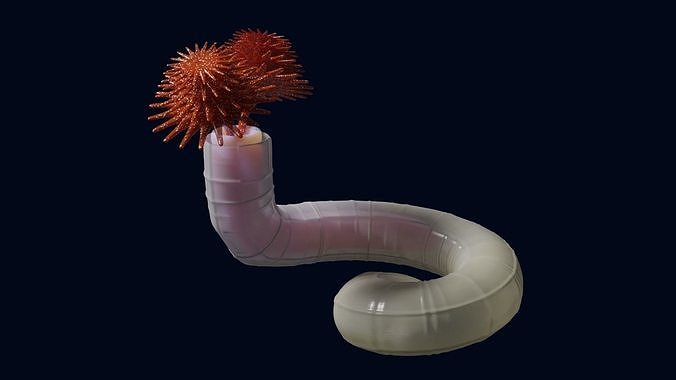
Serpulid Tube Worm 3D model
Serpulids are a family of marine polychaete worms, belonging to the order Serpulida, known for their unique calcareous tubes. These tubes are typically coiled, spiral, or sometimes even straight, and are made from calcium carbonate, which the worms secrete to form a protective and supportive structure. Serpulids attach their tubes to various substrates, such as rocks, shells, coral reefs, or even man-made structures like piers and ship hulls.These worms are sessile, meaning they remain fixed in one location throughout their lives. They extend a crown of tentacles, known as the radiolar crown, from their tubes to capture plankton and small organic particles from the water column for feeding. The tentacles are covered in cilia that create water currents to facilitate the collection of food.Serpulids are important to marine ecosystems in several ways. Their calcareous tubes contribute to the structure of habitats, helping to form complex environments that provide shelter and protection for other small marine organisms. By stabilizing sediments and promoting the growth of other organisms, serpulids play a role in the ecological dynamics of coral reefs and other marine communities.














